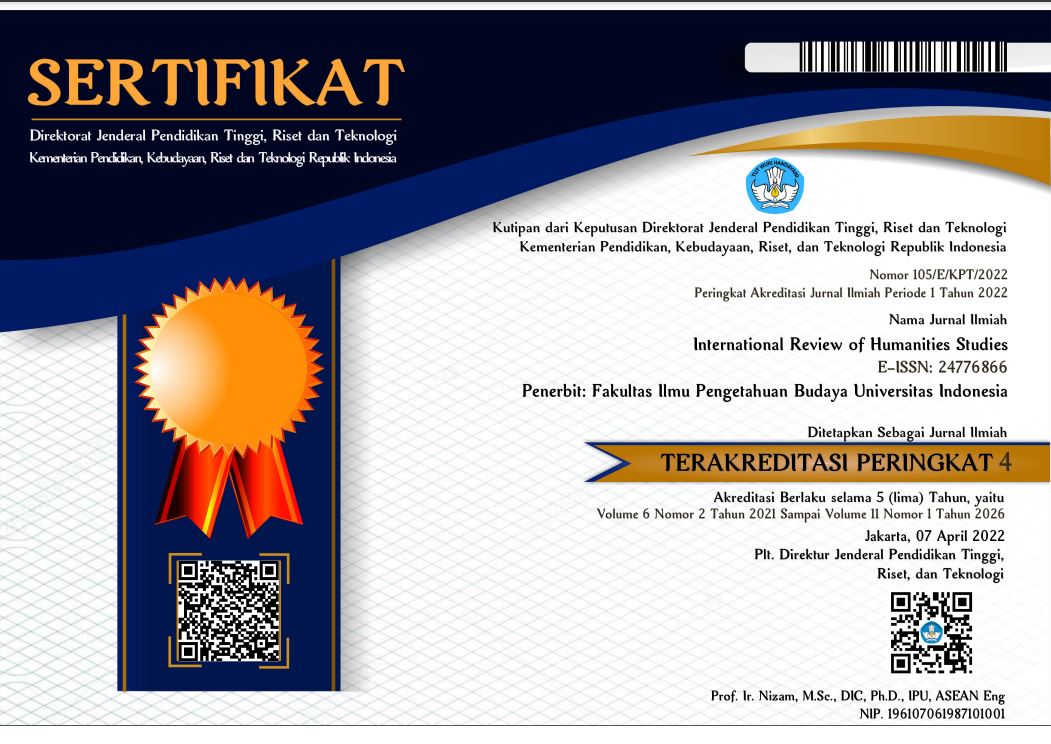International Review of Humanities Studies

ADJECTIVES PERTAINING TO GOOD AND EVIL IN THE TALES OF THE BROTHERS GRIMM AND THEIR UNIVERSAL VALUES
Abstract
The values of good and evil in the tales recounted by the Brothers Grimm are so universal that they have become an integral part of world literature. The research data for this paper was compiled from three tales, Aschenputtel (Cinderella), Rapunzel, and Schneewittchen (Snow White). This research project analyzed the language used in the stories to assess the values of virtue and evil that prevailed in reality in German society at the time the stories were compiled, and that are still valid today. This paper intends to describe the 19th century German concepts of good and bad, the pan-German values embedded in the folktales, and their universal moral appeal to diverse cultures of global human civilization. Qualitative literature study and descriptive data analysis are the methods employed in this investigation. The results indicate that the concept of virtue refers to beauty and generosity, but being good causes the protagonists to suffer. On the other hand, the concept of evil, as described in the three Grimm brothers stories that have been analyzed, refers to heartlessness and wickedness. The antagonists keep endangering the protagonists but eventually, the good characters live happily ever after. The conflict between good and evil is presented through the daily activities of human life that apply to people of varied cultural backgrounds.
Recommended Citation
Wulandari, Julia and Darmojuwono, Setiawati
(2021)
"ADJECTIVES PERTAINING TO GOOD AND EVIL IN THE TALES OF THE BROTHERS GRIMM AND THEIR UNIVERSAL VALUES,"
International Review of Humanities Studies: Vol. 6:
No.
1, Article 12.
Available at:
https://scholarhub.ui.ac.id/irhs/vol6/iss1/12
Included in
Anthropology Commons, Education Commons, History Commons, International and Area Studies Commons, Linguistics Commons


